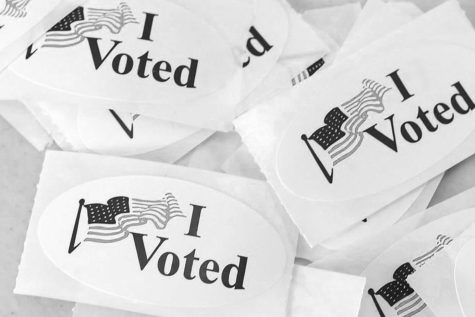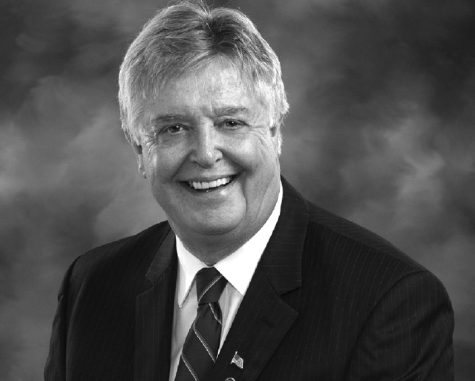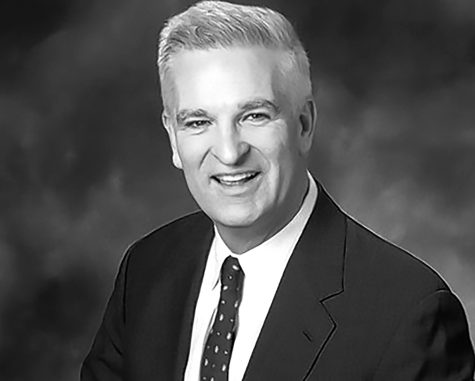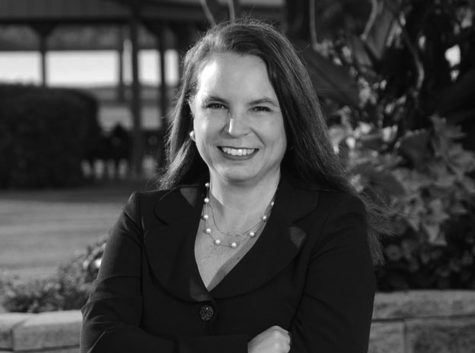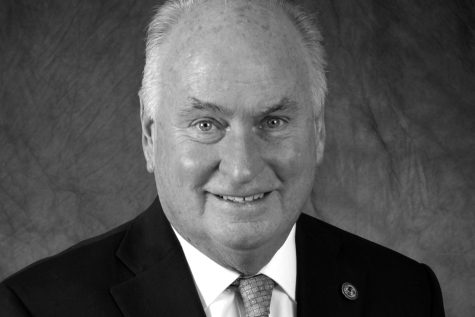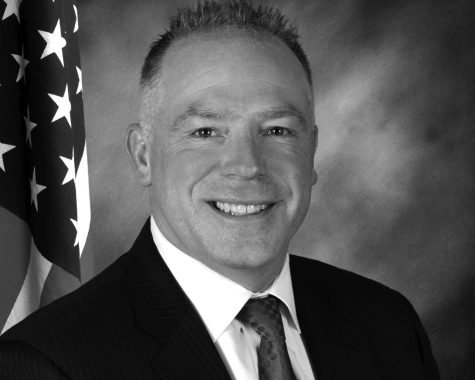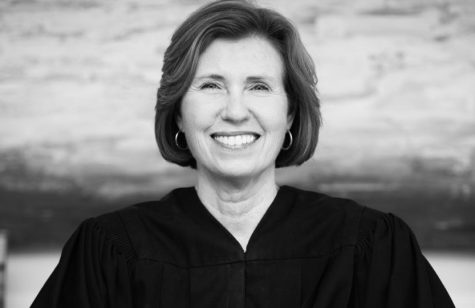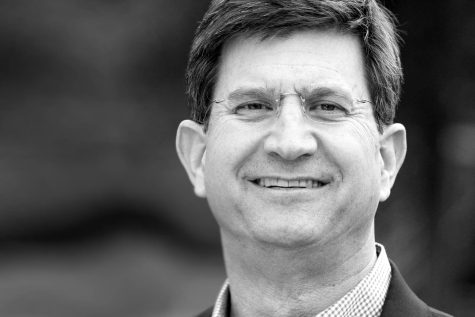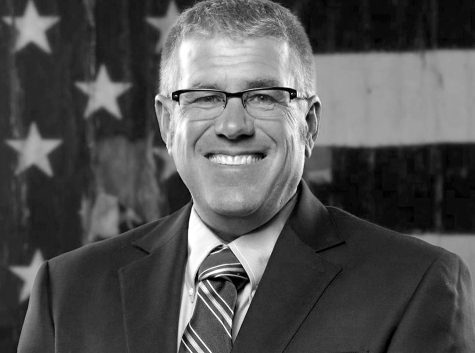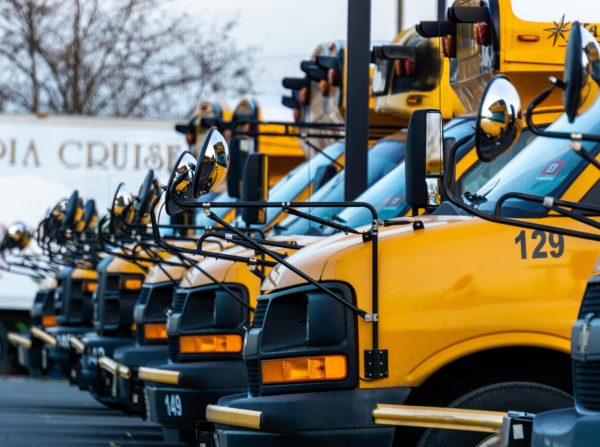Meet Bill Foster, the Democrat running to represent Illinois in the U.S. House of Representatives
Bill Foster, U.S. representative for Illinois’s 11th congressional district, talks civil rights, abortion and democracy ahead of the Nov. 8 election
Bill Foster for Congress
Bill Foster, Democratic congressman for Illinois’s 11th congressional district, has represented Illinois in the U.S. House of Representatives since 2008. Because of redistricting, his district will now include McHenry and other parts of McHenry County.
September 29, 2022
Congressman Bill Foster (D-11) will be up for reelection against Catalina Lauf (R-11) in the Nov. 8 midterm election. He has represented Illinois’s 11th District, which now includes McHenry, in the United States House of Representatives since 2013.
Lauf has not accepted our request for an interview.
Can you tell us a bit about yourself?
I’m best known around the halls of Congress as the only Ph.D. scientist in Congress. I worked at Fermilab for 25 years. With the last of the particle accelerators, I invented it and led the teams that built it. I was actually on the team that discovered the top quark, which is the heaviest known form of matter.
Before I was in science, I was actually in business. When I was 19 years old, my brother and I started a company in our basement with $500. That company now produces about 70% of all the theater lighting equipment in the United States.
There’s a question I usually get: “Why on God’s green earth did you get involved in politics?”
My quick answer to that is that I fell prey to my family’s recessive gene of political activism. This is something that runs in my family. My dad was a scientist who left science to become a civil rights lawyer and ended up writing a lot of the enforcement language behind the Civil Rights Act of 1964.
I go by the name Bill Foster but actually, my legal name is George William V. You might ask who George William Foster I was; he was a soldier for the North in the Civil War. He was a commander of one of the first regiments of freed slaves. It was basically killing the army because he insisted that freed slaves under his command had the right to have the same amount of food as the white soldiers.
So you can see, we’ve been troublemakers for a long time.
What is your proudest accomplishment in Congress?
I entered Congress in March of 2008 when the economy was collapsing. I was very involved and put on the Financial Services Committee.
I was involved in the emergency intervention to keep the economy from collapsing. More importantly, we passed a law called the Dodd-Frank Wall Street Reform Act. It set rules down the road to make sure banks could not take crazy risks that almost destroyed the economy.
That’s one of my proudest achievements. Since we passed that law there has not been any financial crisis [like the recession.]
It’s a tough thing because a lot of people are unhappy because we interfered in the free market. If the free market is putting half of the houses in neighborhoods in foreclosure, it needs help.
You sponsor the Equality Act to amend the Civil Rights Act of 1964. Why?
Civil rights in our country are the work of every generation. It’s not something where we turn on a switch, and all of a sudden, everyone is treated fairly.
My father’s generation passed the Civil Rights Act of 1964. My generation — we’re doing some things like the Equality Act and Obamacare, which allowed most people to have basic healthcare.
The Equality Act is one of the important next steps. It’s hard to explain because it’s not a scientific question. If you look at a lot of these things, like the question of abortion and when life begins — it’s not really a scientific question.
You have to look at your dreams and what your country will look like. Once you decide what you want it to be, you work at it to make your country more perfect. That’s why I believe in the Equality Act; it’s a step forward.
Speaking of abortion, what do you think of the SCOTUS overturning Roe v. Wade?
I’ve been a strong supporter of Roe v. Wade. I think it was a tragedy to strike down what was the law of the land for 50 years — ever since I was a pretty young kid.
I think it’s a fundamental right to do with privacy and control of your own body. The fact that the right got taken away by politicians — the majority of them male — is just not okay with me. I’m very clear on that.
It’s not just abortion they’re targeting; it’s also birth control. The Supreme Court majority opinion was very clear that next on the list is marriage equality and the right to control your body with birth control.
How will you protect reproductive rights if re-elected?
The first thing to do is vote against any of the Republican proposals that will ban abortion nationwide. It’s clear that on top of their agenda is to ban abortion nationwide.
With Dobbs [v. Jackson Women’s Health Organization], the choice was left back to the states. We’re fortunate in Illinois that we have a legislature that will preserve Roe v. Wade, but that’s not true in every state.
One of the startling things about this is that this is not what Americans want. About 70% of people wanted to preserve Roe v. Wade, so how is it that we got a Supreme Court that is so off-centered from the American people?
Do you think extremist Republicans are a threat to democracy?
I think any citizen who refuses to accept election decisions is, of course, a threat to democracy. I don’t think it’s wrong to question the result of an election and take it to court.
If you take your evidence to court and you win, then the election can be overturned. But if there’s no evidence that convinces the court, you have to accept the decision.
It’s not acceptable to go in and disrupt the proceedings necessary to choose the president. For example, Jan. 6 was a mortal threat to our democracy.
It’s sort of the equivalent of — let’s say I don’t like some Supreme Court decisions. So I get a bunch of my friends to go with pitchforks and knives running around saying “Let’s hang the Supreme Court justices.” That is not an acceptable thing to do.
We have a very interesting provision in the United States that anyone who attempts to overturn the government of the United States can’t run for office. I think people should read it very carefully, and think of everyone who was involved in [the Jan. 6 insurrection].
What else should voters know about for this upcoming election?
I think that we have to do a better job of understanding Second Amendment gun rights.
In every generation, there is a level of weapons that is too dangerous to handle by civilians. At the time of the founding fathers, it was okay to have flintlock pistols. It was not okay to have a cannon system because they were too dangerous.
Now, things have changed, and you can have assault weapons that can kill dozens or hundreds of people per minute. With the guy in Las Vegas shooting at a crowd, it would have been a different story if he had a Revolutionary War musket instead of a high-powered weapon. You probably wouldn’t have seen the police terrified of such a weapon.
We have to understand that the Second Amendment — which I support — has to come with limits on how lethal a weapon can be. The fact that gun lobby is so powerful is not okay. Anyone who wants to play against it is taking a political risk. You really have to take your hat off to any politicians who stand up to gun lobby and try to make our country safer; the way it was intended by the founding fathers.












